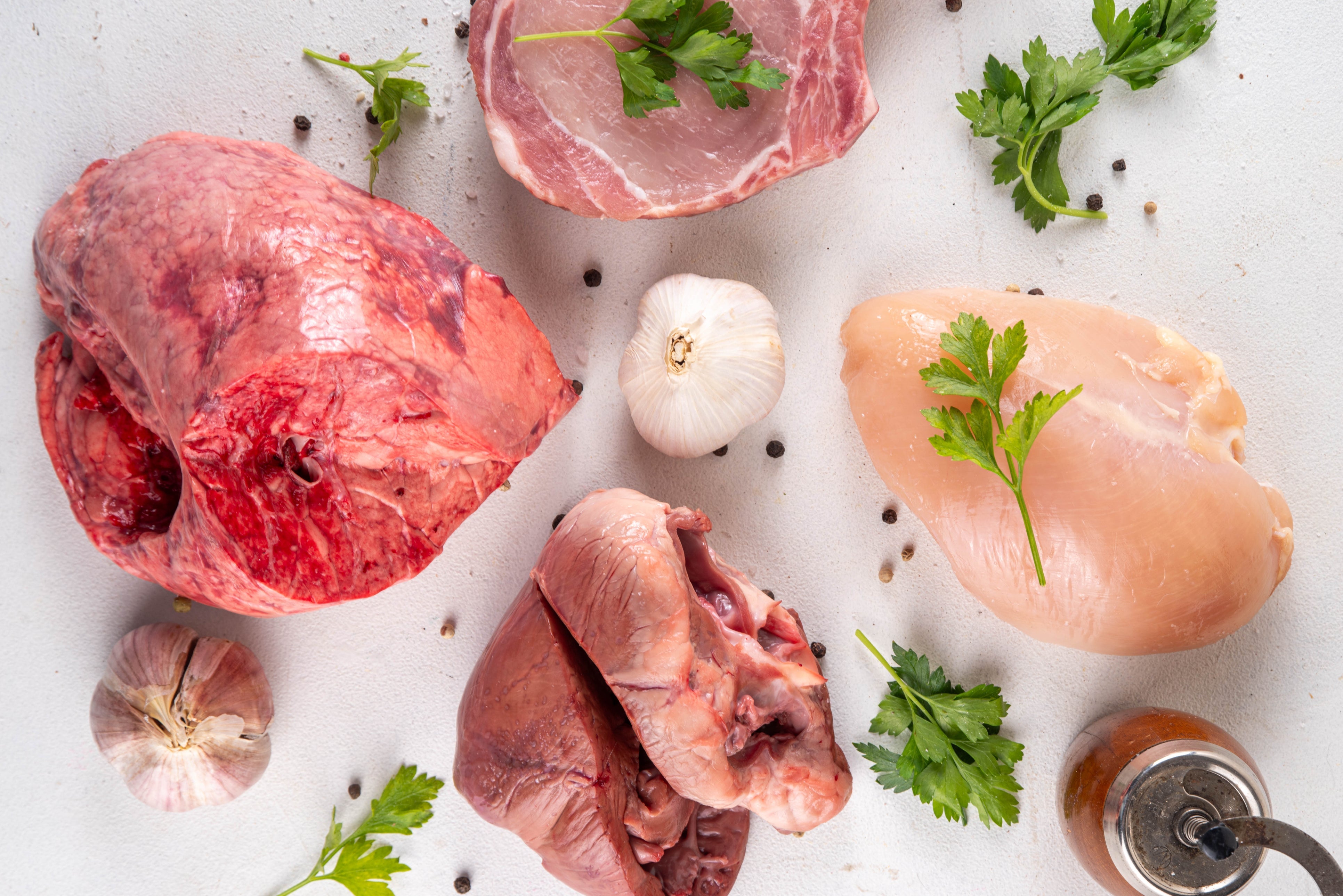Small, consistent habits have a greater impact on health than occasional efforts or extreme overhauls. Crash diets and drastic lifestyle shifts may seem effective initially, but they rarely lead to lasting success. Simple, repeatable actions build the foundation for long-term well-being. Every meal, movement, and daily routine either supports or hinders overall health.
Over time, small choices accumulate, influencing energy levels, mental clarity, and resilience. Relying on willpower alone makes healthy living feel like a struggle, but effortless habits create a natural rhythm of wellness. Nutritional patterns work the same way—steady, daily nourishment provides better results than sporadic attempts to “reset” health.
Why Small, Consistent Habits Matter More Than Big Changes
Health is often approached with an all-or-nothing mindset. Many people believe that success requires extreme effort, leading them to embark on restrictive diets, intense workout regimens, or ambitious detox protocols. Motivation runs high initially, but as daily life gets busy, these efforts become harder to sustain. Many are familiar with the cycle of pushing too hard, burning out, and reverting to old habits. Instead of progress, this approach creates frustration and reinforces the idea that healthy living is difficult or unsustainable.[1]
Relying on willpower alone makes long-term success unlikely. Willpower is a limited resource, easily depleted by stress, fatigue, and decision overload. A restrictive plan might work for a few weeks, but eventually, cravings, social events, or a moment of exhaustion lead to old habits creeping back in. Old habits can create a pattern of starting and stopping, where each setback feels like a failure rather than part of the process.[2]
Small, daily habits provide a different path that doesn’t rely on extremes or depletion. Small, consistent changes fit naturally into daily life without requiring major effort or sacrifice. Rather than relying on strict discipline, they gradually become part of a routine. Something as simple as choosing real, whole foods over processed ones or adding nutrient-rich seasonings to meals can make a lasting difference.[3]
Over time, these small efforts accumulate.
Just like brushing your teeth each day helps to prevent cavities, microdoses of essential nutrients through food can prevent deficiencies and support long-term well-being. The body thrives on steady nourishment rather than occasional extremes. Consistency is far more powerful than intensity regarding real, sustainable health.
Shifting the focus to daily habits removes the pressure of perfection. Eating well doesn’t have to mean rigid meal plans or eliminating entire food groups. Moving the body doesn’t require marathon training or hours at the gym. Small, intentional choices, practiced over time, build the foundation for optimal health. Instead of chasing short-term results, this approach creates habits that last a lifetime.[4][5]
The Role of Nutrient Density in Daily Health
Nutrient density refers to the amount of vitamins, minerals, and essential compounds in a food relative to its calorie content. Organ meats are some of the most nutrient-dense foods on the planet, providing essential vitamins and minerals that are difficult to obtain elsewhere. Unlike synthetic supplements, which may not be fully absorbed, organ meats contain bioavailable nutrients that the body can easily utilize.[6]
Liver, heart, kidney, spleen, and pancreas are packed with bioavailable nutrients like vitamin A, B12, heme iron, zinc, and CoQ10. These nutrients support energy production, brain function, immune health, and vitality. Heme iron from organ meats, for example, is far more absorbable than the non-heme iron found in plants, making it critical for preventing anemia and supporting oxygen transport in the blood. Vitamin A in its retinol form is essential for vision, skin health, and immune function, yet plant-based sources provide only beta-carotene, which some individuals struggle to convert efficiently.[7]
Despite their unmatched nutritional value, most people don’t eat organ meats regularly because of taste, texture, or unfamiliarity with how to prepare them. Modern diets prioritize muscle meats while overlooking the parts of the animal that contain the richest nutrient profiles. Centuries ago, organ meats were considered prized foods, valued for their ability to nourish the body and sustain health. Reintroducing them in small, convenient ways can help restore the benefits that traditional diets once provided.[8]
Microdosing Organ Meats: A Simple Way to Improve Health
Instead of occasionally eating large amounts of organ meats, incorporating them into meals in small doses daily creates a compounding effect that benefits health in the long run. The body thrives on steady, consistent nourishment rather than extreme fluctuations in nutrient intake. Just as daily hydration is more effective than chugging a gallon of water all at once, regular consumption of essential nutrients supports better absorption and long-term wellness.
Pluck is an organ-based seasoning that allows you to get the benefits of organ meats in a way that is easy, delicious, and practical for everyday use. Each serving provides a microdose of liver, heart, kidney, spleen, and pancreas, delivering a steady supply of vital nutrients without requiring drastic dietary changes. Adding it to meals—whether it’s eggs, meat, vegetables, or even popcorn—increases your intake of bioavailable vitamins and minerals without needing extra meal prep.
Our ancestors didn’t take supplements or rely on massive doses of nutrients all at once. They naturally got what they needed by eating various nutrient-dense foods in small amounts throughout the day. Organ meats weren’t seen as a rare superfood—they were a regular part of meals, mixed in with other ingredients, and valued for their ability to nourish and sustain health. Returning to this ancestral wisdom in a modern, convenient way makes nutrient-dense eating effortless and sustainable.[6][7]
Why Frequency Matters More Than Quantity
Modern nutrition often promotes an “overabundance” model—focusing on large quantities of certain foods or supplements to correct deficiencies. But the body doesn’t operate that way. It thrives on balance and consistency.
Eating large amounts of liver once a month might provide some benefits, but getting a small, daily dose through seasoning creates a steady stream of essential nutrients. The body absorbs and utilizes nutrients more efficiently when introduced regularly rather than sporadically. Think about hydration. Drinking an entire gallon of water once a week won’t keep you hydrated. You need small, consistent sips throughout the day. The same principle applies to nutrition.[5]
The Cumulative Benefits of Daily Nutrient Support
Many people notice significant improvements in their health when they start consuming organ meats regularly, even in small amounts. Some of the benefits reported by those who use Pluck daily include:
-
Increased energy levels and reduced brain fog
-
Clearer skin and improved complexion
-
Better digestion and gut health
-
Strengthened immune function
-
Enhanced mood and mental clarity
These benefits don’t happen overnight. They come from the steady accumulation of nutrients over time. Just like financial investments grow through compound interest, nutritional investments grow through consistent daily intake.[6]
Making Health Easy and Sustainable
One of the biggest obstacles to better health is complexity. When people feel overwhelmed by meal planning, food prep, and supplement schedules, they are less likely to stay consistent. The key to long-term success is simplicity—making better health choices effortless.
This is why using a nutrient-dense seasoning like Pluck works so well. It doesn’t require a major lifestyle change or extra effort. It replaces what you’re already using—seasoning your food—with a healthier, more nourishing option.
The Takeaway: Small Changes, Big Impact
Long-term health comes from consistency rather than drastic measures. Following strict diets or short-term fixes often leads to frustration and burnout. Lasting results come from simple, sustainable habits that fit into daily life. Consistency matters far more than intensity; the simplest daily choices add significant health benefits over time.
Integrating small, nutrient-rich habits into daily life gives the body steady support for long-term wellness. Just as movement, hydration, and quality sleep are essential every day, so is providing the body with bioavailable nutrients in forms it can easily absorb. Seasoning food with organ meats in small amounts multiple times daily is an effortless yet powerful way to ensure consistent nourishment without overhauling your diet.
Rather than waiting for a major health issue to arise before making changes, investing in daily habits now sets the foundation for vitality, resilience, and well-being for years to come. True health is built through repetition, not restriction. Making nutrient-dense foods a natural part of everyday meals allows the body to thrive without stress, extremes, or unnecessary complications.
Citations:
-
Gardner, Benjamin, et al. "Making health habitual: the psychology of 'habit-formation' and general practice." British Journal of General Practice, vol. 62, no. 605, 2012, pp. 664–666.
-
Weaver, R. G., et al. "The importance of creating habits and routine." American Journal of Lifestyle Medicine, vol. 13, no. 2, 2019, pp. 142–144.
-
Sharma, Ashish, et al. "Exercise for mental health." Primary Care Companion to the Journal of Clinical Psychiatry, vol. 8, no. 2, 2006, pp. 106.
-
Emmons, Robert A., and Michael E. McCullough. "Counting blessings versus burdens: an experimental investigation of gratitude and subjective well-being in daily life." Journal of Personality and Social Psychology, vol. 84, no. 2, 2003, pp. 377–389.
-
Lally, Phillippa, et al. "How are habits formed: Modelling habit formation in the real world." European Journal of Social Psychology, vol. 40, no. 6, 2010, pp. 998–1009.
-
Leroy, Frédéric, and Martin Cohen. "The Role of Meat in the Human Diet: Evolutionary Aspects and Nutritional Value." Animal Frontiers, vol. 13, no. 2, 2023, pp. 11–18.
-
Kim, Sang Hee, and Sang Gil Lee. "Iron Absorption: Factors, Limitations, and Improvement Methods." Journal of Food Science and Nutrition, vol. 27, no. 3, 2022, pp. 1–10.
-
Kresser, Chris. "Why Organ Meats Are Making a Comeback." Chris Kresser, 2021, https://chriskresser.com/why-organ-meats-are-making-a-comeback/.




Leave a comment
All comments are moderated before being published.
This site is protected by hCaptcha and the hCaptcha Privacy Policy and Terms of Service apply.